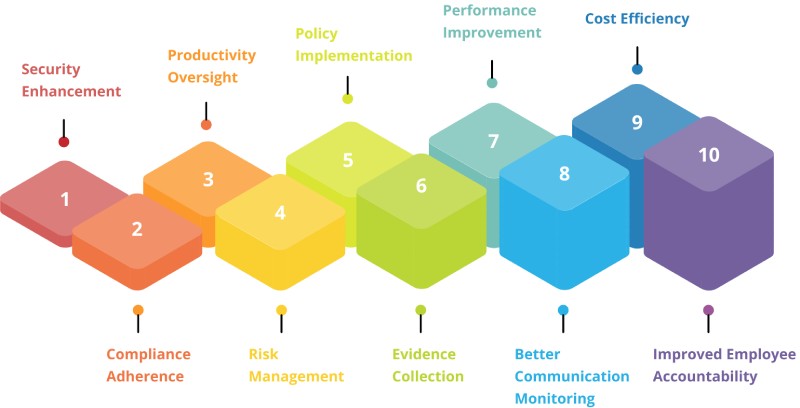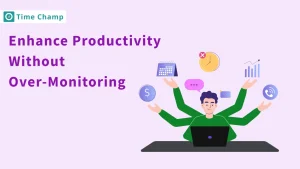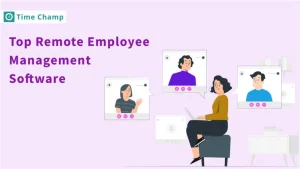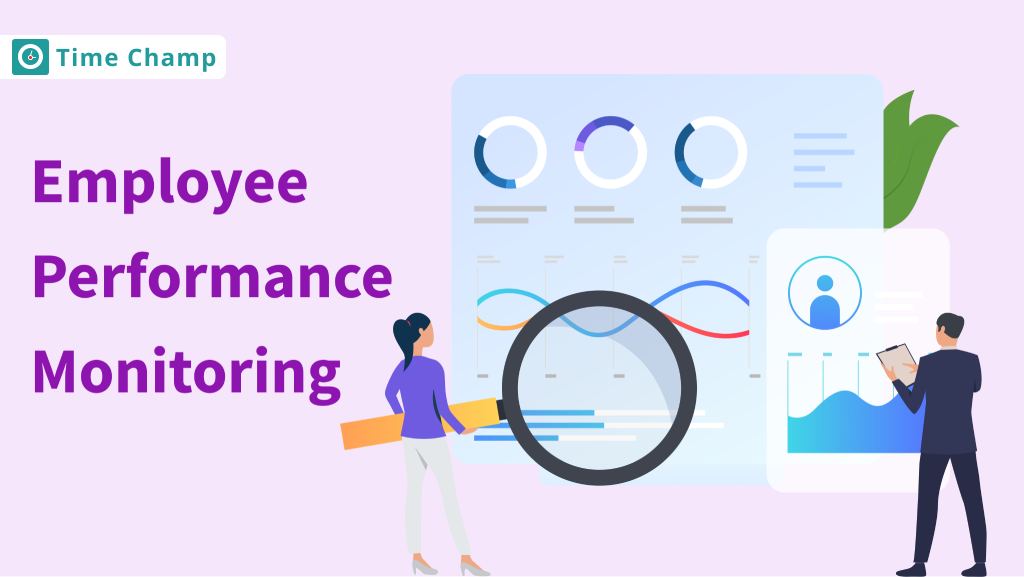Who doesn’t want to safeguard their assets and secret information? Everybody does right! But do you know that emails are one of the easiest ways to get your information out of the borders? This is the reason employee email monitoring is so popular among companies.
However, there are some legal issues relating to monitoring your employee emails. In this blog post, you can find what email monitoring is, how to implement email monitoring in your workplace legally and why companies are attracted to this method.
What is Email Monitoring?
Employee email monitoring is the process of monitoring and supervising the email communication of employees in an organization. It involves the act of going through the content of the emails, the attachments, the recipients, the time and date of the emails and any other information that has to do with the electronic messages sent or received by the employees through the company’s email accounts.
The main goals of email monitoring are usually to enforce compliance with company policies, protect confidential data, reduce security threats, and increase efficiency by preventing the misuse of company email services. This practice is regulated by legal and ethical standards to ensure that the organization’s needs are met while respecting the employees’ right to privacy and confidentiality at the workplace.
Is it Legal to Monitor Your Employee Emails?
You can absolutely monitor your employee emails as long as it is strictly a work email and not an employee’s personal email. Also, there should be a strong reason to monitor and collect information from employees. But before implementing email monitoring in your workplaces make sure to double check with the local and state laws so that you don’t violate them.
Find more information here- employee monitoring laws here.
Also, before monitoring do not forget to inform your employees and get their consent regarding monitoring their work emails this increases employee trust and makes them stay loyal to the organization. Set up an employee monitoring policy in your organization and ensure it is followed.
How Email Monitoring Works?
Email monitoring works in a simple manner. Below you can find the steps that help you easily set up and monitor your employee emails.
1. Setup Email Monitoring Systems
Finding a good email monitoring software is not so difficult, because there are many options out in the market that offer various features and some even offer customization. Find a tool that best suits you and set up the software accordingly.
Do not forget to let your employees know about the software setup in their systems.
2. Capture Email Data
Start monitoring your employee email by scanning all the incoming and outgoing emails in real-time, and remember to note down key metrics to monitor like the email’s sender, recipient, subject line, the date and time of sending/receiving email, and finally the size of the attachments.
You don’t need to go overboard by collecting and monitoring every piece of data collect only what is required and move on.
Maintain ethics while monitoring emails and save the data for future reference.
3. Analyze Email Content
Analyze the contents of the email and store what’s important. You don’t need to overanalyze everything and get stuck in the ocean of junk emails.
According to the state laws of some regions, you can only monitor your employee emails when it is of utmost importance else you might have to face legal complications.
4. Storage
Ensure that the monitored and filtered email data is well stored to avoid cases of hacking, leakage, or misuse. There are some ways to protect such information and they include encryption, access control and storage of such information.
Most of the software provides reporting and storage features, after filtering out and selecting what to preserve you can upload the data to the cloud.
5. Alert and Reporting
Some software provides alert and reporting features. The alert features help notify you of any suspicious activities so that you can act fast and prevent data misuse.
You can also receive detailed reports from the software which provides insights into email usage trends and compliance levels.
6. Compliance & Legal considerations
Ensure compliance with email monitoring practices and ensure your organization complies with applicable laws and regulations concerning employee privacy and data protection. You can consult a legal counsel to ensure your monitoring practices align with the local and international laws.
Benefits of Monitoring Employee Emails

Employee email monitoring provides numerous benefits for organizations here, I have listed some of them take a look.
- Security Enhancement: By monitoring your employee emails, you can prevent data breaches and protect your sensitive information from unauthorized access or leaks. Security is a fundamental need for every company. When you can enhance security by monitoring employee emails, it becomes an essential practice that no organization should overlook.
- Compliance Adherence: Monitor your employee emails and ensure compliance with legal and regulatory requirements. You can ensure your employees are working properly and not violating the company’s privacy and information by monitoring for inappropriate content, compliance violations, or illegal activities.
- Productivity Oversight: You can get to know how productive your employee is by monitoring their emails and how efficiently he/she is working to contribute to the company goals.
- If you need to completely analyze your employee productivity, then you can also opt for employee productivity monitoring software. Find more info here.
- Risk Management: Easily reduce risks related to phishing attacks, malware distribution, and insider threats by detecting suspicious or malicious emails promptly. Have you ever wondered how much businesses lost due to phishing attacks let me tell you, on average, corporations face a cost of $4.91 million per phishing attack.
Did You Know ?
Approximately 1.2% of all emails exchanged contain malicious content, resulting in an astonishing 3.4 billion phishing emails sent each day.
- Policy Implementation: By using employee email monitoring you can set up policies concerning email usage, confidentiality, and other acceptable behaviors that will help to create a secure and professional working environment. These are policies that you can modify as you put them into practice depending on the needs of your organization.
- Evidence Collection: Ever been stuck in conflicts at the workplace and had no proof to justify your statement? This is where email monitoring comes into help, you can make use of the information collected through the software to prove your point and resolve disputes. Not only you can resolve conflict, but these records play an important role in providing information for investigations and legal matters.
- Performance Improvement: It is simple to find out whether your employee requires any training by just observing their emails and then planning the further course of action. You can also optimize the distribution of resources using the analysis of email activity and increase the efficiency of your work.
- Better Communication Monitoring: Easily track internal and external communication to check whether they are in line with the organizational objectives and policies. Communication plays a central role in the process of collaboration and the attainment of organizational objectives.
- Cost Efficiency: It is easy to point out areas of waste or unnecessary spending concerning the use of emails, which can be eliminated. Identify inefficiencies or unnecessary expenses related to email usage, leading to cost-saving measures.
- Improved Employee Accountability: If your employees know that they are being monitored, then there is a high probability that your employees are always on their toes and work as expected. This awareness fosters a culture of high accountability and commitment towards the organizational standards and improves performance and adherence to company policies.
Conclusion
In conclusion, Employee email monitoring is quite an easy and beneficial method to implement when you are well aware of the laws that need not be violated. You just need to do some research and try out different software to find the best one that fits your needs and start monitoring. Last but not least, always prioritize your employees’ privacy and make sure you maintain respectful monitoring practices.






